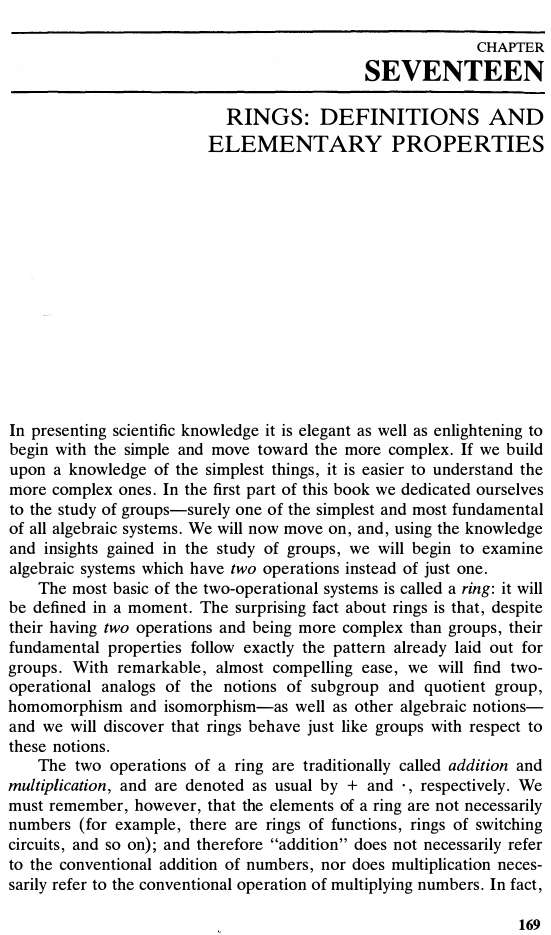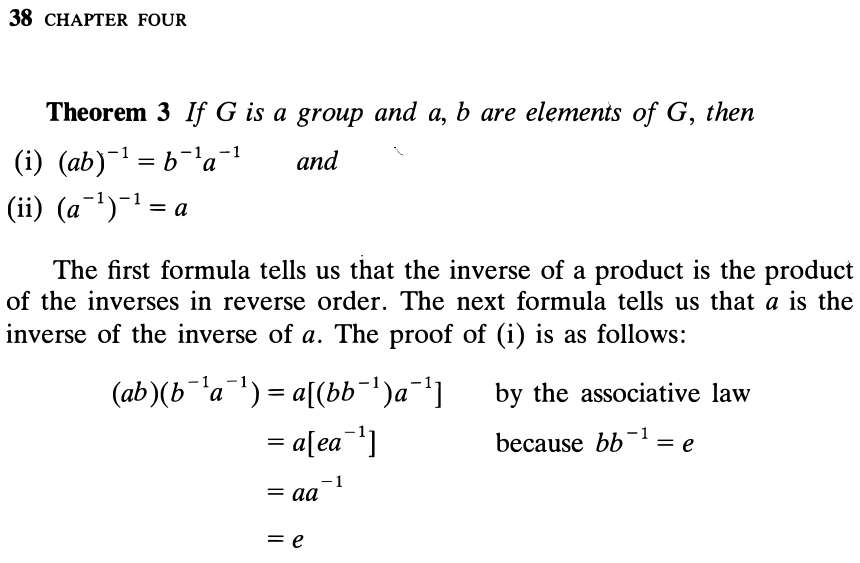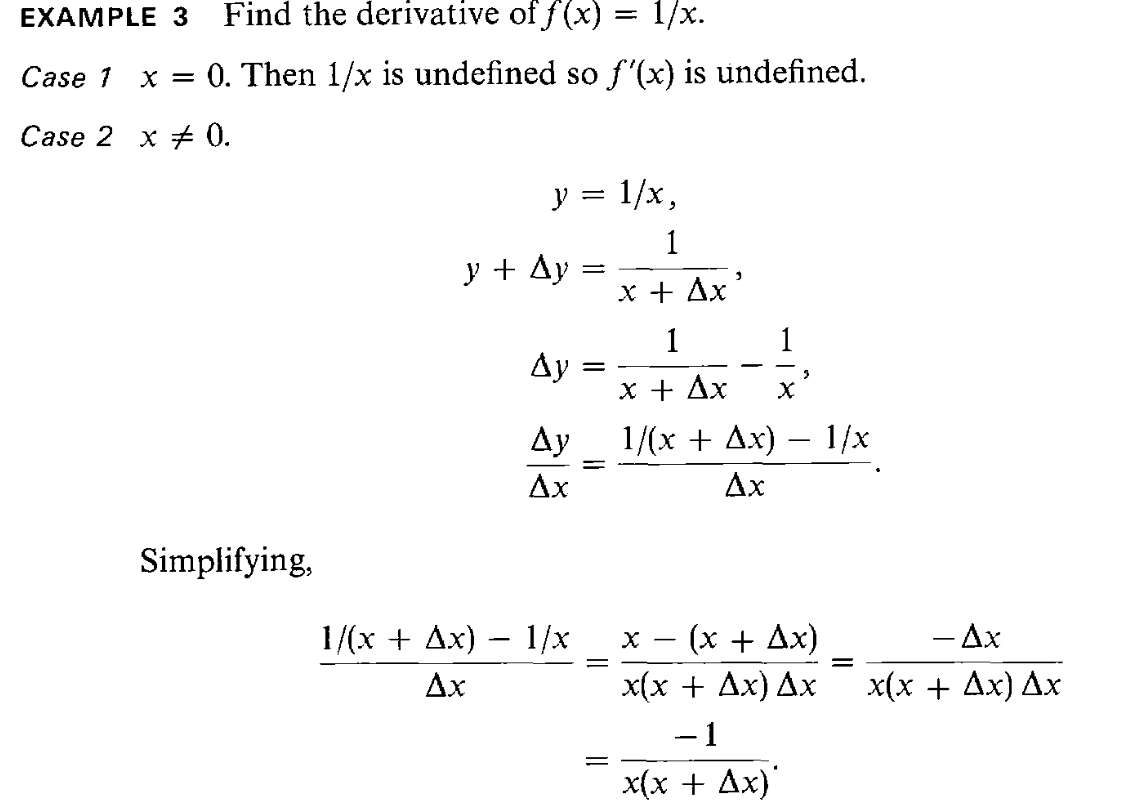Aha, I found what I'm looking for:
(ab)^-1 = (a^-1)(b^-1)Now, I'm trying to follow an example of how to get the derivative of 1/x. Once again, whenever I see I fractions, I frequently scratch my head how did the book go from this to that. I should probably learn the basics how to combine fractions together, but I am weirdly fixed on notational purity, so I want to see could I solve this just in terms of exponents.
First, consider the equation:
1/(x+y) - 1/x
= 1/(x+y) + -1/x
= (x+y)^-1 + x^-1
(x+y)^-1 =? (x+y)1^-1
x^n = (x^a)(x^b) where n = a+bNope, it's even more complicated now, I've further strayed away from the light, the opposite of simplifying.
Oh well, I think I'll read the book of abstract algebra first.











